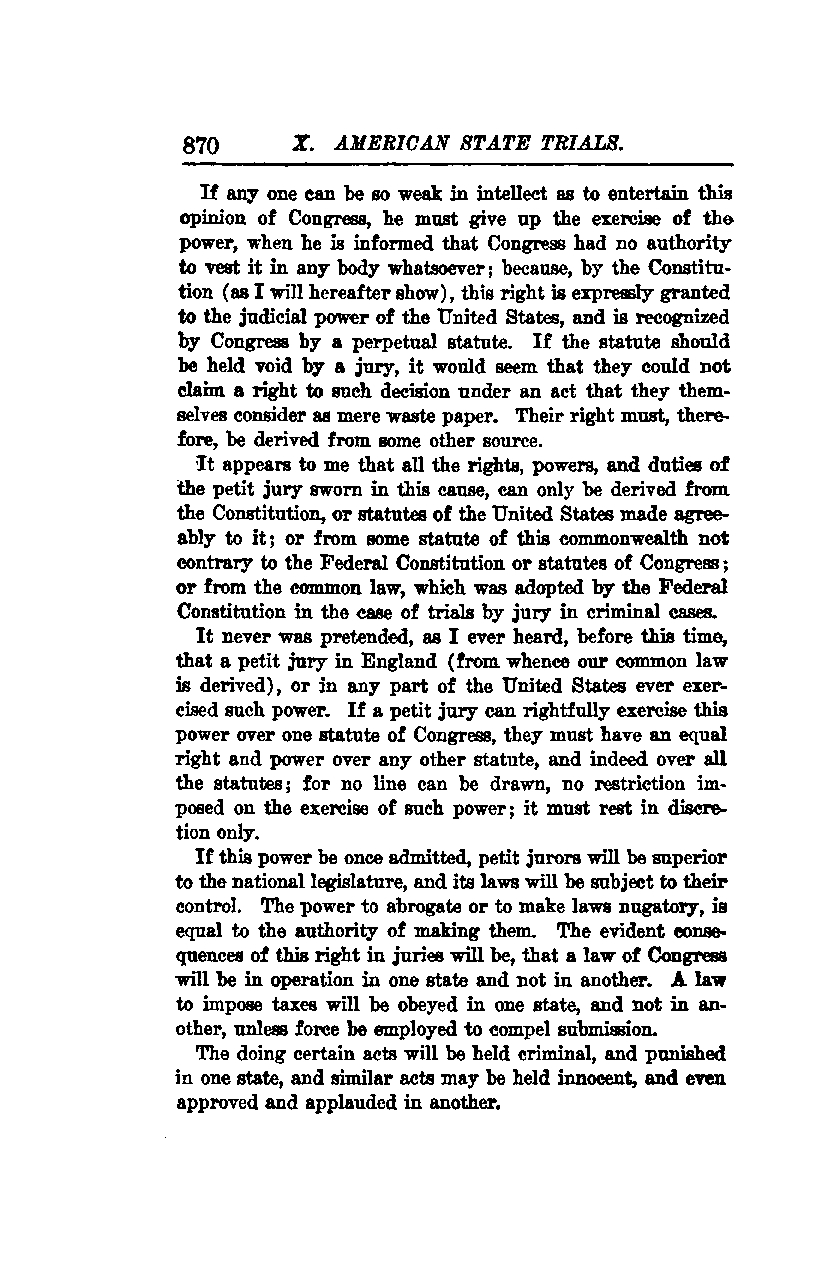
Here is the translated text as follows:
If anyone can be so weak in intellect as to entertain this opinion of Congress, they must give up the exercise of the power when informed that Congress had no authority to vest it in any body whatsoever. This is because, as I will hereafter show, the Constitution expressly grants this right to the judicial power of the United States, and it is recognized by Congress through a perpetual statute. If the statute were to be held void by a jury, it would seem that they could not claim a right to such a decision under an act that they themselves consider mere waste paper. Therefore, their right must be derived from some other source.
It appears to me that all the rights, powers, and duties of the petit jury sworn in this cause can only be derived from the Constitution or statutes of the United States made in accordance with it; from some statute of this commonwealth not contrary to the Federal Constitution or statutes of Congress; or from the common law, which was adopted by the Federal Constitution in the case of trials by jury in criminal cases.
It was never pretended, as far as I have heard, before this time, that a petit jury in England (from whence our common law is derived), or in any part of the United States, ever exercised such power. If a petit jury can rightfully exercise this power over one statute of Congress, they must have an equal right and power over any other statute, and indeed over all the statutes; for no line can be drawn, no restriction imposed on the exercise of such power; it must rest in discretion only.
If this power is once admitted, petit jurors will be superior to the national legislature, and its laws will be subject to their control. The power to abrogate or to make laws nugatory is equal to the authority of making them. The evident consequences of this right in juries will be that a law of Congress will be in operation in one state and not in another. A law to impose taxes will be obeyed in one state and not in another, unless force is employed to compel submission.
The doing of certain acts will be held criminal and punished in one state, while similar acts may be held innocent, and even approved and applauded, in another.